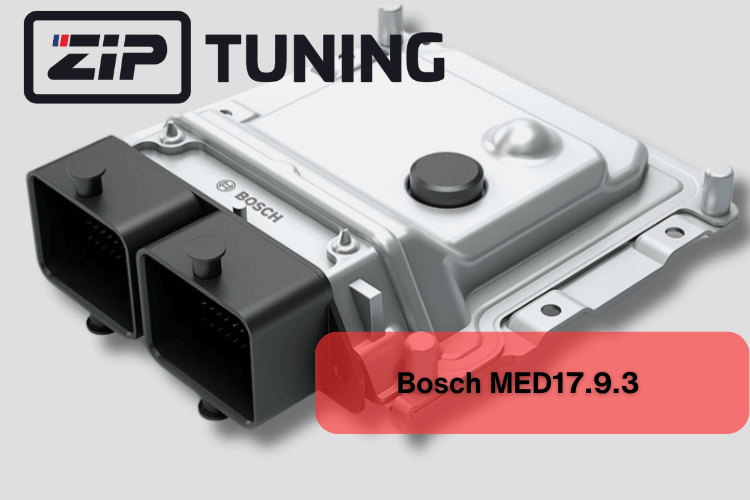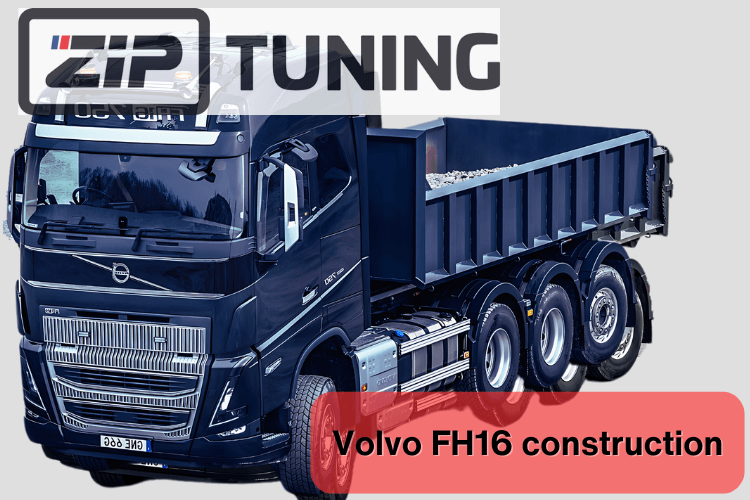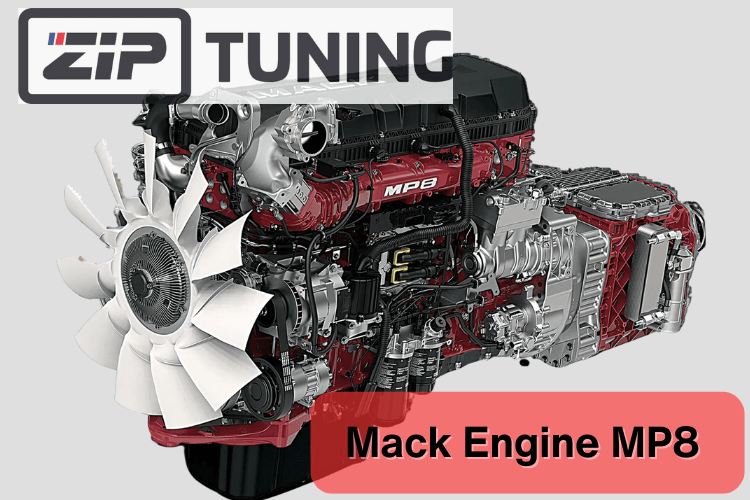Truck Tuning
Truck Tuning: The Technical Process of heavy duty ecu tuning
Truck ECU tuning is a sophisticated process that involves modifying the software parameters controlling various engine functions. Our engineers at Ziptuning analyze and optimize key areas such as fuel injection timing and duration, turbocharger boost pressure, air-fuel ratio, torque limiters, exhaust gas recirculation (EGR) rates, and variable geometry turbo (VGT) operation.

By fine-tuning these variables, we can extract more power and torque across the RPM range while maintaining safe operating conditions. For instance, adjusting fuel injection timing can improve combustion efficiency, while increasing boost pressure allows more air into the cylinders for greater power output.
Advanced Tuning Techniques
For more aggressive performance gains, we employ advanced techniques such as:
- Installing additional sensors (e.g., EGT probes) for enhanced monitoring
- Customizing tunes based on specific use cases (heavy pulling vs. intermittent use)
- Utilizing specialized software like WinOLS for precise ECU modifications
Our tuning methods include ECM reflashing, which involves completely reprogramming the ECM with new software, and in some cases, we may use piggyback modules or inline tuning devices for specific applications.
Key Benefits of Professional Truck Tuning
When performed properly by our experienced tuners, ECU optimization can provide several important benefits:
- Increased horsepower and torque (typically 15-30% gains)
- Improved fuel efficiency (10-20% reduction in fuel consumption)
- Enhanced throttle response and drivability
- Optimized performance for specific tasks and conditions
For example, we recently tuned a Paccar MX-13 engine and achieved a 75 horsepower increase along with a 15% improvement in fuel economy during heavy hauling operations.
Engine Brands and Tuning Considerations
At Ziptuning, we have extensive experience tuning a wide range of heavy-duty diesel engines, including:
- Paccar (MX-11, MX-13 engines)
- Caterpillar
- Cummins
- Detroit Diesel
- Volvo
- Mack

Each brand has unique ECM architectures and tuning approaches. For instance, when tuning Paccar MX-13 engines, we focus on optimizing the variable geometry turbocharger and common rail fuel injection system to achieve significant power gains.
Safety and Longevity Considerations
While the performance gains are enticing, maintaining engine reliability and longevity is our top priority. We take a conservative approach, carefully balancing performance with durability. Our tunes stay within the mechanical limits of engine components and do not compromise emissions equipment or void warranties unnecessarily.
Advanced data logging and dyno testing allow us to validate the safety of our calibrations across a wide range of operating conditions. We also retain all factory safety parameters to prevent potential engine damage.
Emission Calibration and After-Treatment Systems
As engines age, recalibration of emission systems may become necessary to avoid and solve issues with after-treatment components. Our expertise extends to fine-tuning these systems, ensuring optimal performance while maintaining compliance with environmental regulations.
For off-road applications, we offer advanced tuning options that may involve modifying emissions systems like DPF, EGR, and AdBlue. However, we always prioritize compliance with local regulations and environmental responsibility.
When dealing with older engines, our recalibration process may involve:
- Adjusting sensor thresholds
- Optimizing regeneration cycles for diesel particulate filters (DPF)
- Fine-tuning exhaust gas recirculation (EGR) rates
- Calibrating AdBlue injection for selective catalytic reduction (SCR) systems
The Ziptuning Advantage
With over two decades of experience tuning heavy-duty diesel engines, Ziptuning offers unparalleled expertise in truck ECU optimization. Our engineering team combines deep knowledge of engine management systems with extensive real-world testing to deliver powerful yet reliable tunes.
We utilize state-of-the-art diagnostic and calibration tools to read and modify even the latest truck ECUs. Our custom dyno facility allows us to precisely measure performance gains and ensure our tunes perform flawlessly under load.

Considerations and Challenges
While tuning can provide significant benefits, we always consider important factors such as:
- Emissions compliance
- Warranty implications
- Durability concerns
- Fuel quality requirements
Our professional tuning approach ensures that we optimize performance while addressing these considerations to provide the best possible outcome for our clients.
Ready to unleash the full potential of your truck? Contact Ziptuning today to learn more about our professional ECU tuning services. Our team of experts is standing by to help you achieve new levels of trucking productivity and efficiency.
Need Truck Tuning file
FAQ
What are the primary parameters adjusted during ECU tuning for a heavy-duty diesel truck?
The main parameters include fuel injection timing, fuel quantity, turbocharger boost pressure, and torque limiters.
How does adjusting the start of injection timing affect engine performance?
Advancing the start of injection can increase power output but may also increase NOx emissions. Retarding it can reduce emissions but may decrease power and efficiency.
What’s the impact of increasing rail pressure in a common rail diesel engine?
Higher rail pressure can improve fuel atomization, leading to more complete combustion, increased power, and potentially better fuel economy.
How does tuning affect the Diesel Particulate Filter (DPF) regeneration cycle?
Tuning can modify the DPF regeneration parameters, potentially reducing the frequency of regeneration cycles and improving fuel efficiency.
What considerations should be made when tuning a truck for increased towing capacity?
Focus on optimizing low-end torque, adjusting transmission shift points, and ensuring the cooling system can handle the increased heat load.
How can tuning help improve fuel economy in long-haul applications?
By optimizing injection timing, quantity, and turbo boost for cruise conditions, and implementing more aggressive engine braking for downhill sections.
What are the risks of over-boosting a turbocharger during tuning?
Over-boosting can lead to increased engine wear, potential turbocharger failure, and excessive exhaust gas temperatures.
How does tuning affect the Exhaust Gas Recirculation (EGR) system?
Tuning can adjust EGR rates to balance between NOx reduction and particulate matter formation, potentially improving both emissions and performance.
What’s the importance of torque management in heavy-duty truck tuning?
Proper torque management ensures the drivetrain components aren’t overloaded while still providing maximum usable power.
How can tuning address turbo lag in heavy-duty diesel engines?
By optimizing the VGT (Variable Geometry Turbocharger) settings and fuel mapping for quicker spooling at lower RPMs.
What are the considerations when tuning for high-altitude performance?
Adjusting boost pressure, fueling, and possibly VGT settings to compensate for the thinner air at high altitudes.
How does tuning impact engine braking performance?
Tuning can enhance engine braking by optimizing the timing and duration of the compression release events.
What are the potential benefits of transmission tuning in heavy-duty trucks?
Transmission tuning can optimize shift points, shift firmness, and torque converter lockup strategies for improved efficiency and performance.
How can tuning help address cold start issues in diesel engines?
By adjusting parameters like glow plug duration, idle speed, and initial fueling to improve cold start performance and reduce emissions.
What’s the role of air-fuel ratio adjustment in diesel tuning?
Optimizing air-fuel ratios can help balance power output, fuel efficiency, and emissions across various operating conditions.
How does tuning affect diesel engine longevity?
Proper tuning can improve engine longevity by optimizing combustion and reducing stress on components, but aggressive tuning may increase wear.
What are the challenges in tuning SCR (Selective Catalytic Reduction) systems?
Tuning must balance NOx reduction with AdBlue consumption and ensure the SCR system remains effective across all operating conditions.
How can tuning address issues with diesel knock or combustion noise?
By fine-tuning injection timing, pressure, and pilot injection strategies to smooth out combustion events.
What are the considerations when tuning for biodiesel compatibility?
Adjusting fuel mapping and possibly injection timing to account for biodiesel’s different energy content and combustion characteristics.
How does multi-stage injection tuning impact performance and emissions?
Optimizing pilot, main, and post injections can improve combustion efficiency, reduce noise, and help control emissions across the operating range.

